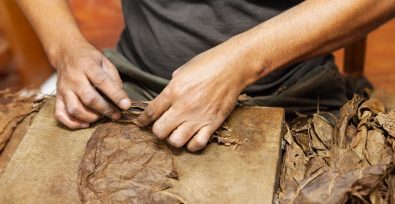Incarcerated people in Cuba are being forced to make cigars and charcoal for export to Europe, according to a new report by the NGO, Prisoners Defenders. The NGO estimates that at least 60,000 people work in forced labor under threats and unsafe conditions. The report describes a “national and institutionalized system of forced labor” tied to Cuba’s economic aims.
Trapped in prison labor
The investigation followed a report on forced prison labor presented to the UN Human Rights Council in 2024 by the UN special rapporteur on slavery. Between April and August 2025, Prisoners Defenders interviewed 53 individuals across 40 prisons, selected from a population of about 90,000 inmates, followed by an additional 60 interviews.
All respondents said they worked “under coercion, threats, violence or reprisals.” Nearly all lacked the proper tools or training and almost half said they experienced violence at work. Two of the eight women interviewed also said they endured sexual harassment from officers. One said she was sexually assaulted, but was denied medical or psychological care.
A former inmate interviewed by the Guardian explained how refusing to work came at a price. He said:
“They put a note in your file. When it’s time for parole or when you might get a visit with your family, they use this as justification to strip you of your rights.”
The report also highlights racial discrimination. Afro-Cubans make up about 34% of the population but 58% of those incarcerated. A Black former incarcerated individual told the Guardian that authorities sent most Black incarcerated people to forced labor, while assigning white incarcerated people easier work.
“national and institutionalized system of forced labor”
The products reach European consumers, with cigars exported to the UK and charcoal shipped mainly to Spain, Portugal, Italy, Greece, and Turkey. Though marketed as “ecological,” the report said the charcoal is produced “in a state of absolute modern slavery.”
“Cuban prisons are not rehabilitation centers, but spaces of punishment, control and exploitation. And their structural transformation is a debt owed to human dignity,”
Prisoners Defenders places the responsibility squarely on the Cuban government. Cigar exports are controlled by Corporación Habanos SA, a joint venture 50% owned by the Cuban government and 50% by foreign investors.
At the Quivicán maximum security prison, officials reportedly forced at least 40 inmates to roll 60 unbranded cigars a day. But the quota only counts if it meets “export quality standards.” The report confirmed cigar production in at least seven prisons. Together, 505 inmates produced 11.6 million cigars a year—about 7.5% of Cuba’s national total.
People over profits now
Prisoners Defenders has shared the findings with governments and international bodies, urging a ban on products made with forced prison labor. The report also demands access for independent observers.
Freedom United stands with Prisoner Defenders, calling for mandatory human rights due diligence laws to stop businesses from profiting from slavery. Governments must put people before profits. Sign the petition now.







Freedom United is interested in hearing from our community and welcomes relevant, informed comments, advice, and insights that advance the conversation around our campaigns and advocacy. We value inclusivity and respect within our community. To be approved, your comments should be civil.